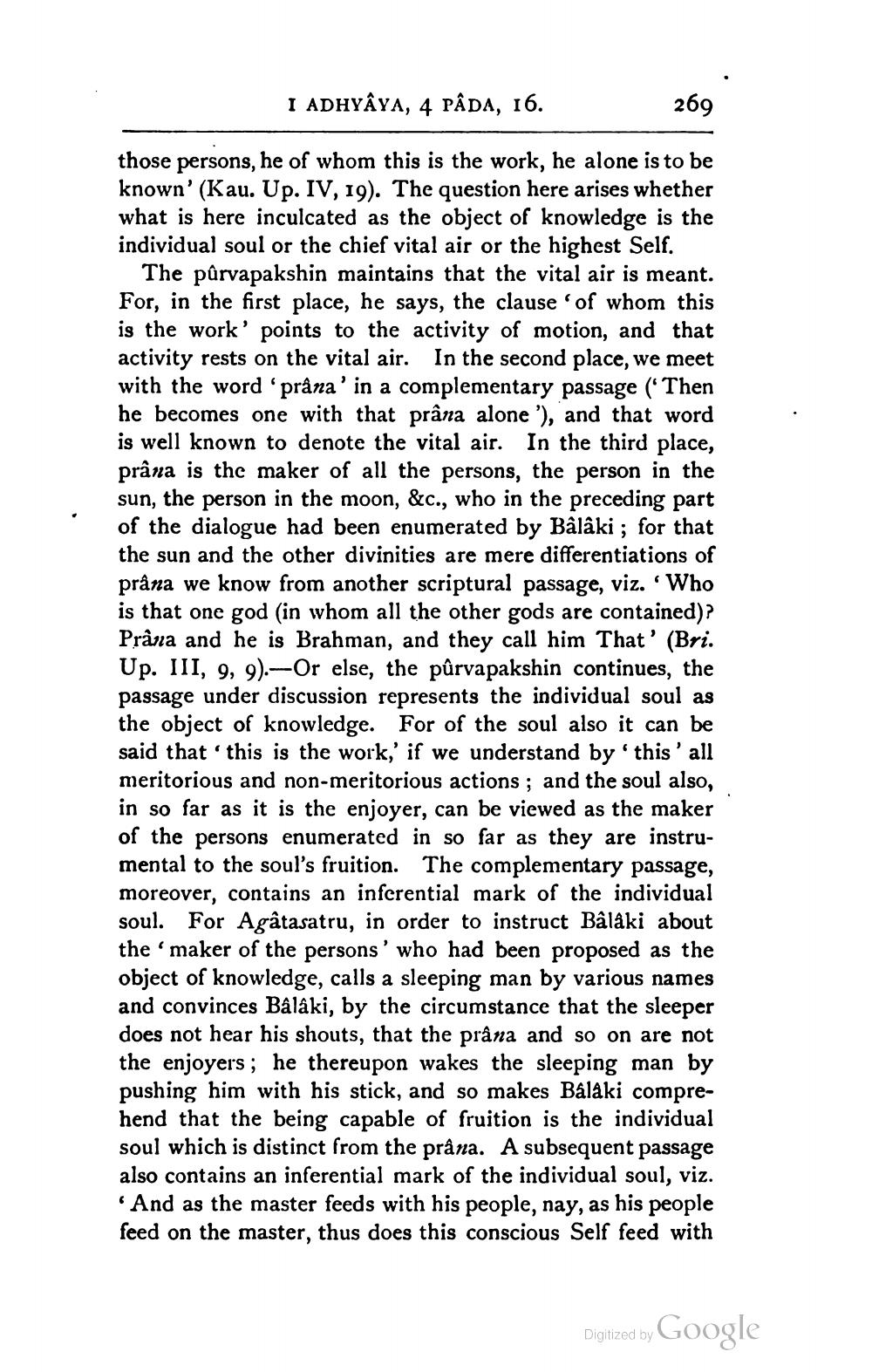________________
I ADHYÂYA, 4 PÂDA, 16.
269
those persons, he of whom this is the work, he alone is to be known' (Kau. Up. IV, 19). The question here arises whether what is here inculcated as the object of knowledge is the individual soul or the chief vital air or the highest Self.
The pûrvapakshin maintains that the vital air is meant. For, in the first place, he says, the clause of whom this is the work' points to the activity of motion, and that activity rests on the vital air. In the second place, we meet with the word 'prâna' in a complementary passage Then he becomes one with that prâna alone '), and that word is well known to denote the vital air. In the third place, prâna is the maker of all the persons, the person in the sun, the person in the moon, &c., who in the preceding part of the dialogue had been enumerated by Bâlâki ; for that the sun and the other divinities are mere differentiations of prâna we know from another scriptural passage, viz. Who is that one god (in whom all the other gods are contained)? Prna and he is Brahman, and they call him That' (Bri. Up. III, 9, 9).-Or else, the pûrvapakshin continues, the passage under discussion represents the individual soul as the object of knowledge. For of the soul also it can be said that this is the work,' if we understand by 'this' all meritorious and non-meritorious actions; and the soul also, in so far as it is the enjoyer, can be viewed as the maker of the persons enumerated in so far as they are instrumental to the soul's fruition. The complementary passage, moreover, contains an inferential mark of the individual soul. For Agâtasatru, in order to instruct Bâlâki about the 'maker of the persons' who had been proposed as the object of knowledge, calls a sleeping man by various names and convinces Bâlâki, by the circumstance that the sleeper does not hear his shouts, that the prâna and so on are not the enjoyers; he thereupon wakes the sleeping man by pushing him with his stick, and so makes Bâlâki comprehend that the being capable of fruition is the individual soul which is distinct from the prâna. A subsequent passage also contains an inferential mark of the individual soul, viz.
And as the master feeds with his people, nay, as his people feed on the master, thus does this conscious Self feed with
Digized by Google




